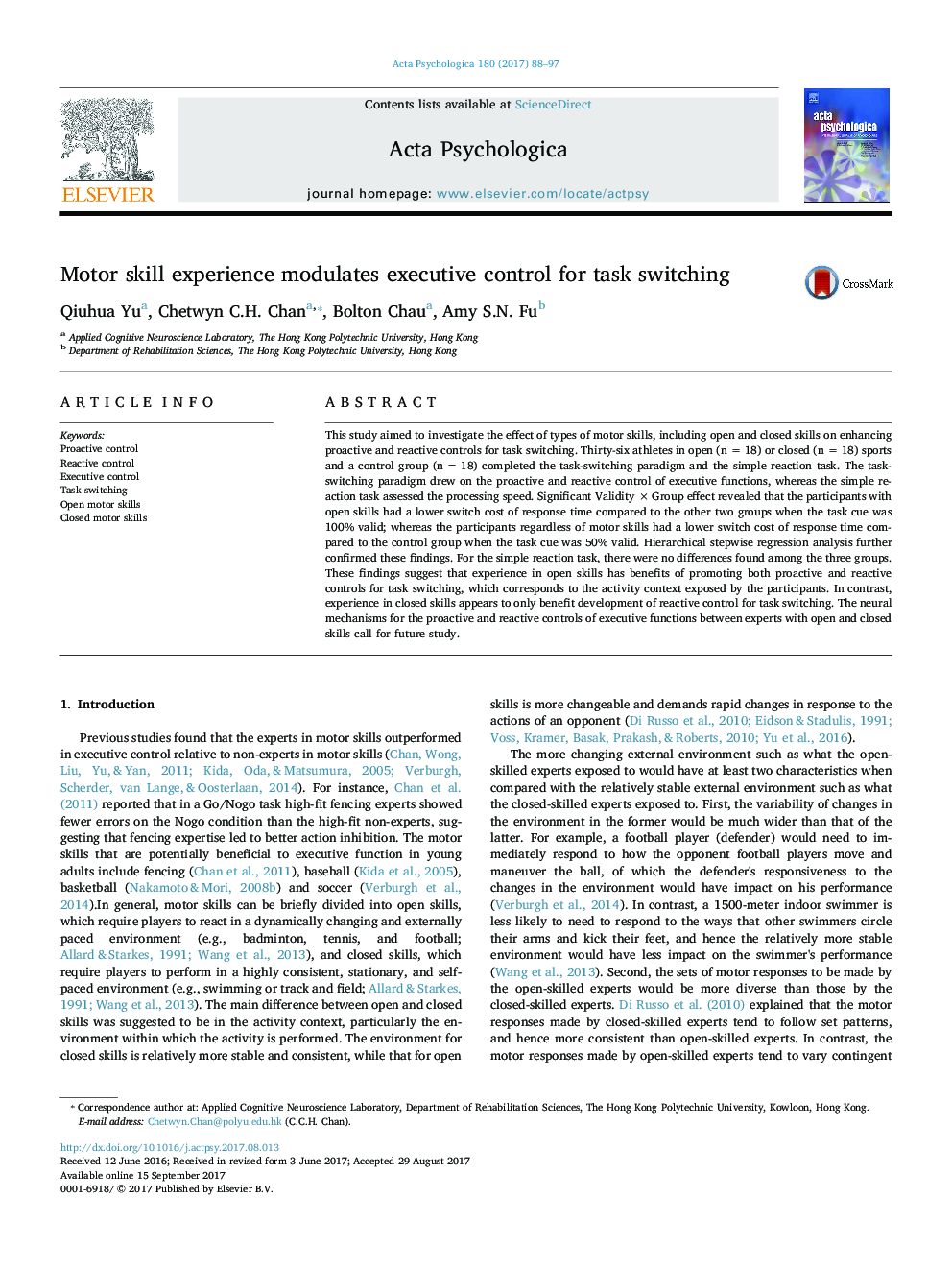| Article ID | Journal | Published Year | Pages | File Type |
|---|---|---|---|---|
| 5040185 | Acta Psychologica | 2017 | 10 Pages |
â¢Types of motor skills influence development of executive control.â¢Proactive and reactive controls of task switching are dissociable.â¢Open sports such as badminton promote proactive and reactive controls.â¢Closed sports such as track and field promote reactive but not proactive control.
This study aimed to investigate the effect of types of motor skills, including open and closed skills on enhancing proactive and reactive controls for task switching. Thirty-six athletes in open (n = 18) or closed (n = 18) sports and a control group (n = 18) completed the task-switching paradigm and the simple reaction task. The task-switching paradigm drew on the proactive and reactive control of executive functions, whereas the simple reaction task assessed the processing speed. Significant Validity Ã Group effect revealed that the participants with open skills had a lower switch cost of response time compared to the other two groups when the task cue was 100% valid; whereas the participants regardless of motor skills had a lower switch cost of response time compared to the control group when the task cue was 50% valid. Hierarchical stepwise regression analysis further confirmed these findings. For the simple reaction task, there were no differences found among the three groups. These findings suggest that experience in open skills has benefits of promoting both proactive and reactive controls for task switching, which corresponds to the activity context exposed by the participants. In contrast, experience in closed skills appears to only benefit development of reactive control for task switching. The neural mechanisms for the proactive and reactive controls of executive functions between experts with open and closed skills call for future study.
